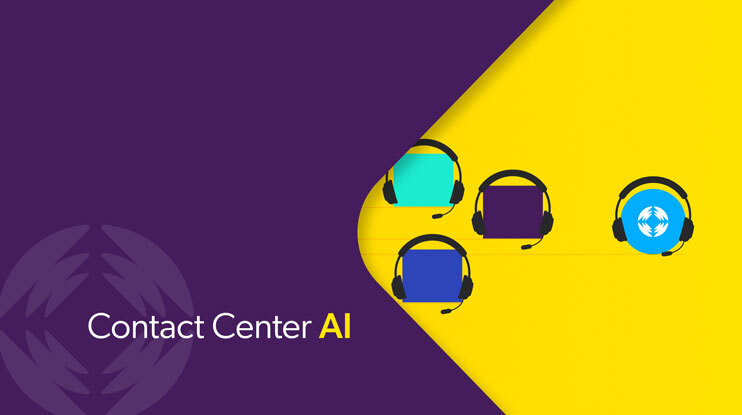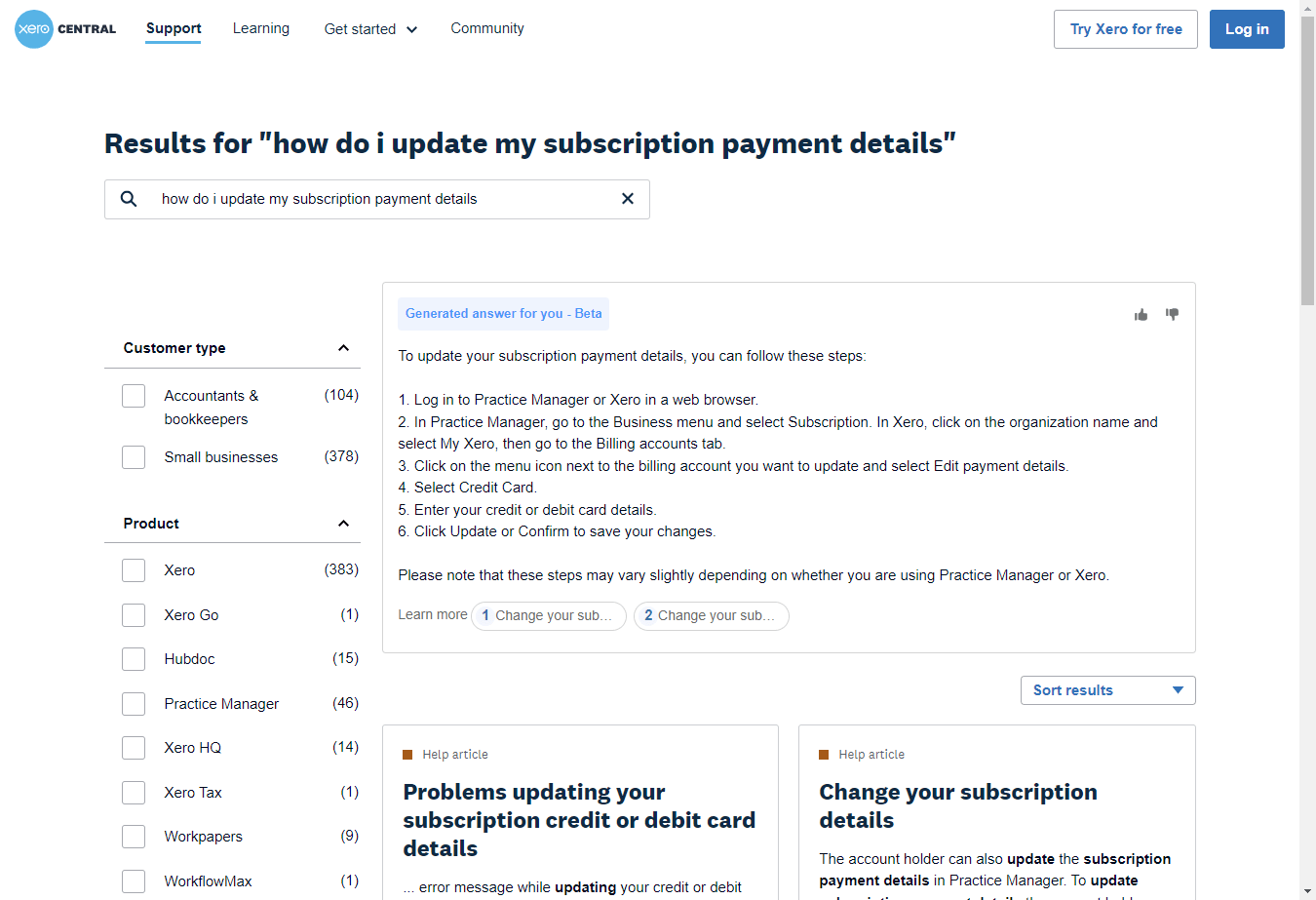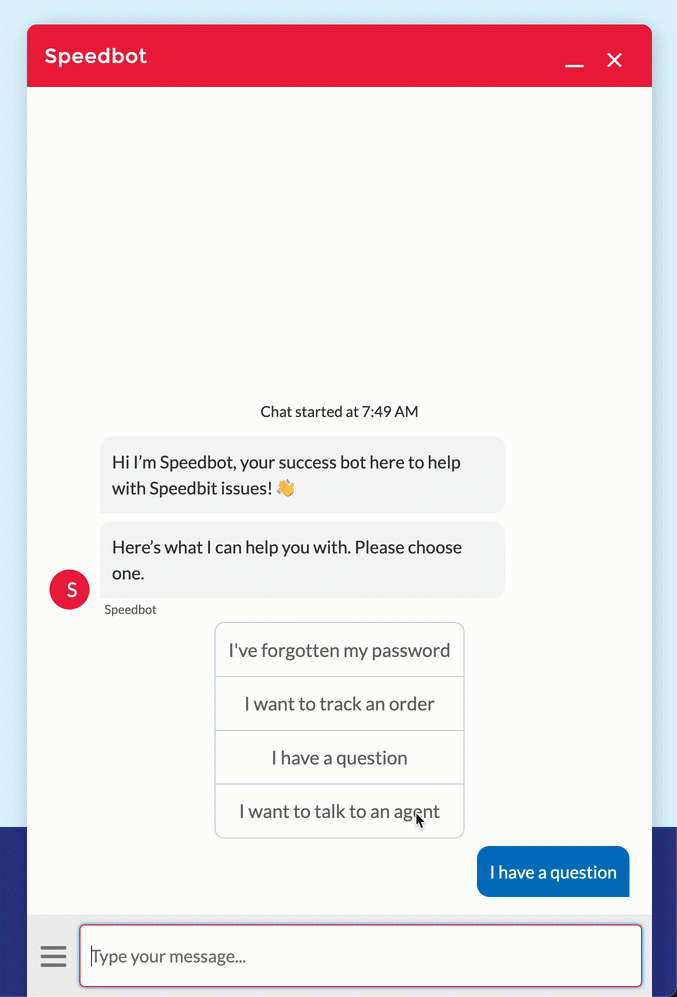With so many new developments in artificial intelligence (AI), it’s a good time to revisit an important question: can contact center AI meet the personalization that 73% of consumers expect? What about the customer service agents that serve them?
What will the practical applications of contact center AI look like moving forward?
Broadly speaking, contact center AI is more than capable of driving agent efficiency (and proficiency), automating routine tasks, and supporting data-driven decision making. In fact, optimizing service operations is the top use case for AI since 2017 (customer service analytics is #3).
Let’s dig into what the numbers and use cases actually say about contact center AI.
The Building Blocks of a Contact Center AI Platform
What makes contact center AI so powerful is the collection of advanced capabilities that it’s built on. These capabilities have vastly expanded in recent years, but three core building blocks bear mentioning here:
Machine learning
Contact centers create a lot of data, which AI can use to improve performance on a given task. This is the purpose of machine learning (ML), which can enable everything from automated chatbot assistants to search recommendations.
ML models like recommendation models improve the CX by making it feel more personalized and intuitive, demonstrating that you know your customers. Coveo’s own ML models include Advanced Relevance Tuning, Query Suggestion, and Event/Product Recommendation.
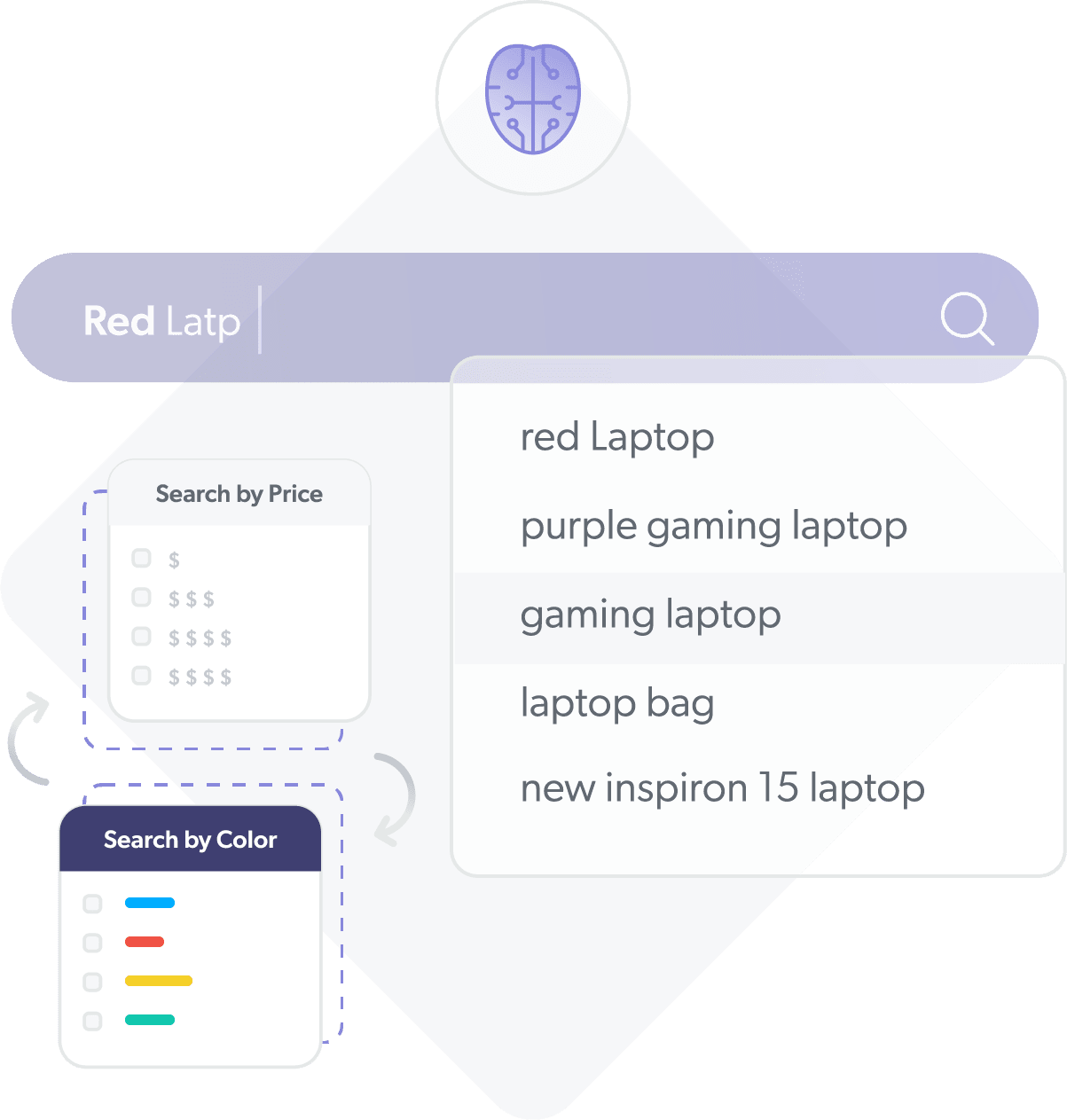
Natural language processing (NLP)
NLP is what allows computers to understand, interpret, and generate human language in a way that’s both meaningful and useful. NLP techniques usually leverage ML and deep learning to process and understand language. This enables much of the intelligent functionality you’ll find in chatbots leveraging conversational AI, sentiment analysis, and call routing.
This provides enterprises with true VOC in the digital channel, not just the words the customer thinks the company would use, but their own description of the pain points as queries.
Generative AI
By now, you’ve likely encountered some form of generative AI (GenAI), such as Gemini or ChatGPT. These and other generative AI algorithms rely on large language models (LLMs) to generate text and create fluent conversations. Within the contact center, GenAI has the potential to provide human-like service interactions in a number of key channels.
The fastest time-to-value with GenAI application lies in customer self-service. When you combine GenAI with a unified index, questions with complex answers become easier to self-serve — before, customers would have to delve into disparate documentation to piece together their answer. Your GenAI application reduces the blue-link middle man, serving up a response with citations that the customer can dig deeper into if they like.
High-Value Uses Cases for Contact Center AI
Thanks to a robust feature set and flexible integrations, you can leverage AI across channels and organizational silos. Herein lies the exciting potential for a contact center AI platform to boost agent productivity, improve customer satisfaction, and create a more connected and intelligent operation overall.
Customers who use Coveo’s AI-powered customer service solution often see a 20% improvement in CSAT and a 30% reduction in cost-to-serve. As to how, let’s highlight four use cases in particular:
Agent Assist
When working through customer cases all day, agents can hardly spare a second. It follows that 80% of customer service agents agree that having quick access to knowledge has an impact on key contact center metrics, such as case resolution time.
To that end, contact center AI can pre-populate the agent view with case-specific recommendations, including content that’s resolved similar issues in the past. This lets agents work in a “single pane of glass”, and they don’t have to screen hop so often to get relevant information. This is a major pain point in the connected rep work.
It can also enable predictive search, self-optimizing search results, and case-contextual recommendations. Ideally, contact center AI has already helped route the case intelligently by this point, putting the human agent yet another step ahead.
AI can also shorten the time it takes for agents to develop in their roles. You can leverage insights from the AI-powered search analytics to personalize agent coaching sessions, for instance. Consider these four theoretical coaching questions that Coveo’s Insight Panel Analytics helps answer:
- At what point do you capture knowledge?
- How do you look for knowledge when you’re working to resolve cases?
- How can we improve how cases are being logged so we’re getting the results we want?
- How do you look for knowledge when you’re working to resolve cases?
Customer Self-Service
Across what has become a non-linear customer journey, customers expect to find relevant information where and when they need. Through intelligent recommendations and search experiences, conversational AI can create relevance across website entities, self-service portals, and other customer self-service experiences.
Intelligent Case Assist
Relying on AI, case assist provides customers with fewer, more relevant classification options when submitting their cases, while automatically suggesting related articles as they describe their issue. The latter can help deflect cases at the point of submission. For the customers that do submit cases, the case information and subsequent recommendations are far more dialed in, helping to reduce average handle time.
In-Product Contextual Help
Embed product support within products and apps so customers can access personalized content without having to leave their product. In-product contextual help can reduce friction and discourage drop-off for both new and advanced users.
It can help deflect cases too, as people get AI-powered, personalized help directly in their own workflows. So if you’re working in the Workday app, you stay there to get resolution.
Connect and Measure
AI loves data. As such, it’s just the right tech for tracking the number of cases deflected, generating service-focused reports, and automatically identifying content gaps (where a customer searches and doesn’t find helpful content) that require attention.
Generative AI in Self-Service
Imagine a ChatGPT-like experience deployed in the context of customer self-service. In Getting Started with Generative AI in Self-Service, our team details such an experience. Only this form of generative AI in self-service relies on a secure index, Coveo Relevance Generative Answering (CRGA) to ground the context, and a large language model to generate a conversational answer within self-service experiences. As such, customers receive accurate, tailored answers—complete with citations; and customer service teams avoid many of the pitfalls associated with generative AI (security concerns, hallucinations, etc.).
Intelligent Case Routing
Use data-driven algorithms and automation to direct incoming calls to the most appropriate agent or department based on various factors such as caller information, agent availability, and the nature of customer inquiries. AI can be trained to automatically pull from customer history data about product and journey instantly from your CRM system to promptly sort and categorize call types and predict issues, enhancing even “legacy” call-routing setups, such as skills-based routing.
Chatbot AI
A self-learning, conversational AI chatbot can swiftly provide relevant answers and content suggestions without the need for time-intensive rule adjustments. With the help of conversational AI, chatbots can deliver seamless customer experiences by leveraging various question-answering and intelligent search capabilities to index and deliver content across platforms. They can also capture customer interaction data and integrate it with other channels, deepening the context that agents have for each and every case.
Best Practices for Contact Center AI Technology
These foundational strategies can help you better enrich your customer service experiences with contact center AI:
Establish a Knowledge Foundation
Enabling agents and customers to self-serve the answers they need, an AI-powered search function needs a rich index of content to work with. As such, call centers need to bring disparate sources of knowledge content (knowledge base, help center, product documentation, and so on) into a single source of truth.
In other words, a unified index.
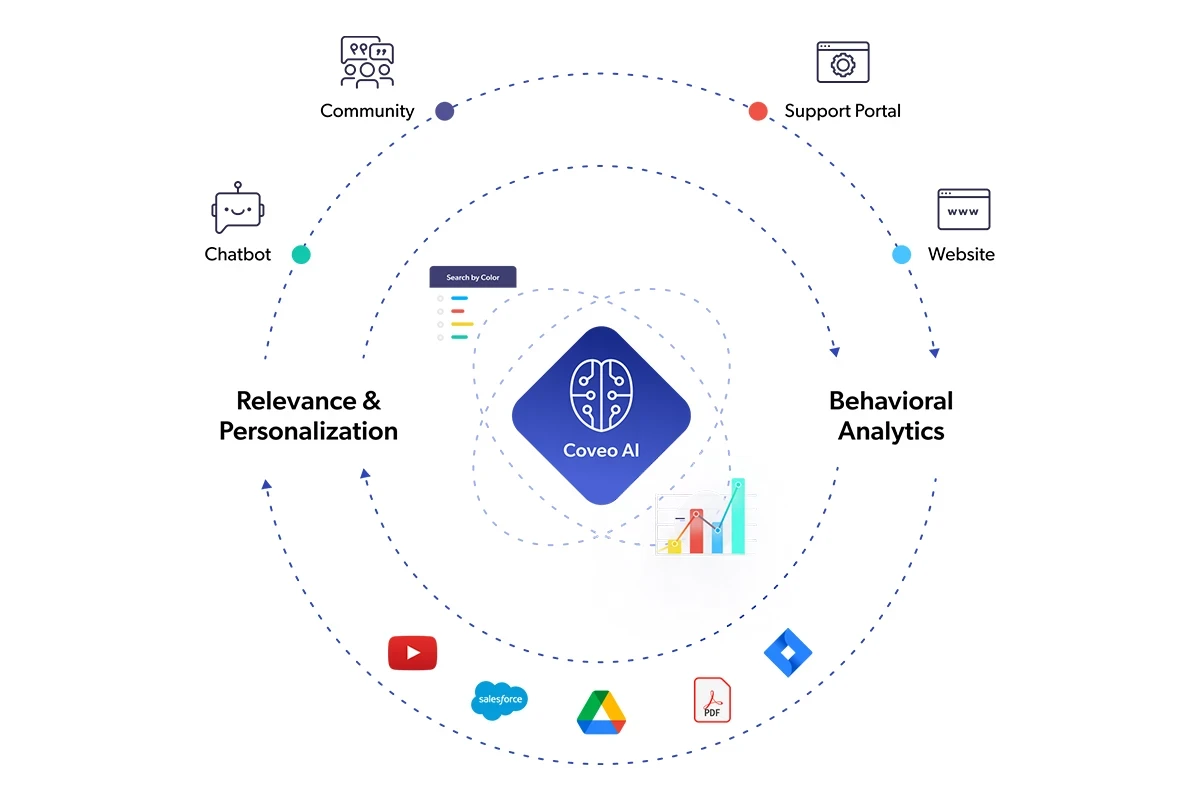
From there, you’ll need to build a process for capturing and reusing knowledge, both agent-facing and customer-facing sides of support. Knowledge-Centered Service (KCS®) , from the Consortium for Service Innovation, provides a solid framework for this practice.
Monitor Customer Behavior and Measure Success
Data is one of an AI-powered search engine’s best friends. The better a call center can gather data on each customer interaction, center operations and average handle time, the better the search experience will ultimately be. Why? Because any AI-powered search solution worth its salt will learn and self-improve based on the input it receives.
For example, Coveo Usage Analytics includes dashboards for things like self-service website usage, center agent utilization rate, and customer behavior metrics — every underrated call center metric that AI and machine learning can use to improve operational efficiency and their overall customer satisfaction score.
Form a Culture of Continuous Improvement in Contact Center Management
No search experience is 100% perfect out of the box. The very best search experiences will improve over time based on what agents and customers are telling it. One way call centers can ensure this continuous improvement is to keep tabs on a few important contact center KPIs :
- Top queries by call center staff
- Top queries by customers
- Most opened documents by source/channel
- Search queries leading to no results
- Search queries leading to call volume
Over time, these metrics will reveal opportunities for improvement for both contact center agent training and customer experience.
Benefits of Contact Center AI
“Insight engines combine search with AI to deliver actionable insights derived from the full spectrum of content and data sourced within and external to the enterprise.” That characterization comes from the Gartner Magic Quadrant for Insight Engines, in which Coveo is named a leader.
This characterization supports the notion that contact center AI and AI-powered search can help call centers shed their age-old “cost center” moniker. It’s a moniker that Max Ball, Principal Analyst at Forrester, would like to do away with altogether.
“The path to transformative customer engagement is a series of small, cost-effective steps that add up to a significantly better customer experience,” he says, “each with its own solid ROI and benefit to the bottom line.”
Case Studies for Contact Center AI
Do these measures actually have an impact on call center efficiency? A number of our customer success stories indicate that they do.
Xero
Xero, a leader in cloud-based accounting software, uses AI to deflect one million unnecessary support tickets a month. Quite the call center KPI. Their Coveo-powered search solution helps ensure that more than 95% of questions asked in Xero’s customer community are answered automatically — all without agent intervention.
Beyond their self-service search experience, Xero uses Coveo to proactively recommend content based on what a specific caller or agent is trying to do. You can see an example of this personalization in the image below, in which the help content the customer seeks is personalized to their customer profile, behavioral data, and previous customer interaction.
Xero even uses AI search to support other non-support use cases. For example, they tailor the search experience in their app marketplace to make sure visitors can quickly find the best solution for their needs (while increasing the chance of engagement, click-through, and conversion).
Xero is also on the forefront of using Generative Answering, hoping to help customers find answers – before they need to call support.
Boomi
Boomi saw a 300% increase in case deflection during the first three months after implementing Coveo AI within Salesforce. Today, 97% of Boomiverse sessions involve intelligent search. Their contact center performance has significantly improved center operations. They’ve embraced this technology in their contact center, and it’s paying tremendous dividends.
Medallia
Medallia leverages Coveo AI to help out contact center agents already servicing a customer issue. With Coveo AI, Medallia’s Tier 1 agents can now handle 34% more cases on their own, without escalating to the next service level.
Of note is Medallia’s use of call tracking, which helps their team tie online interactions with call data to further personalize customer experiences, including search. This provides a deep data source for the algorithm to consider, further enriching the overall customer and agent experience.
Coveo for Einstein Bots
For contact center teams that already employ an Einstein bot, Coveo for Einstein Bots helps for outside-the-box dialogs that may arise. Coveo AI can interpret the customer’s language and suggest personalized results.
Solution and Execution is Everything for Contact Center AI
It’s clear that contact center AI has tremendous potential. But consider this: 22% of consumers will break up with a brand due to misinformation provided by a customer service agent or support agents.
This data point underscores two important points:
The first is that the stakes are incredibly high in terms of contact center performance. Increasingly, customers will not tolerate even one bad call center experience. Which begs the question: what’s the cost of a single incoming phone call compared to the cost of losing the customer entirely?
The second point is that the accuracy and relevance of the information is critical to agent performance. As the aforementioned case studies reveal, contact center AI and AI-powered search can not only help support agent training by equipping them for better contact resolution in the moment, but often prevent the need for that phone call in the first place.
It’s on analysts’ radar. The roadmap for an AI-powered call center is already in place. Which leaves just one question: can a contact center AI platform really improve customer experience?
Absolutely.
Dig Deeper
Looking for ways to improve your contact center efficiency? Check out the Guide to Creating an AI-powered Contact Center Experience Inside Salesforce. This guide includes insights into how to create an environment that makes every agent a genius, even in the face of an avalanche of incoming calls. These include:
- Nine key data points that agents can view within a single view
- The keys to a healthy knowledge management program
- What lies outside of Salesforce (and why it’s so important)
- How to personalize the agent experience without reinventing the wheel
Download the full guide here.

